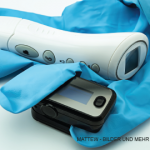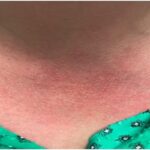In the study, most patients responded well to corticosteroids, colchicine, anakinra and non-steroidal anti-inflammatory drugs (NSAIDs). However, complete remission was rarely achieved with NSAIDs alone.
“One way in which our findings may support patients is simply by recognition of the existence of their diseases, which are true orphan disorders,” Dr Frenkel explains. “The study is very much descriptive, so it will not provide any evidence base for therapy. However, it is clear from our results that there are distinct subgroups within the broader group of undefined autoinflammatory diseases.”
ad goes here:advert-1
ADVERTISEMENT
SCROLL TO CONTINUE
Carina Stanton is a freelance science journalist based in Denver.
References
ad goes here:advert-2
ADVERTISEMENT
SCROLL TO CONTINUE
- Ter HaarNM,EijkelboomC,CantariniL,et al.Clinical characteristics and genetic analyses of 187 patients with undefined autoinflammatory diseases. Ann Rheum Dis. 2019 Oct;78(10):1405–1411.
- Georgin-Lavialle S, Fayand A, Rodirgues F, et al. Autoinflammatory diseases: State of the art. Presse Med. 2019 Feb;48(1 Pt 2):e25–e48.


